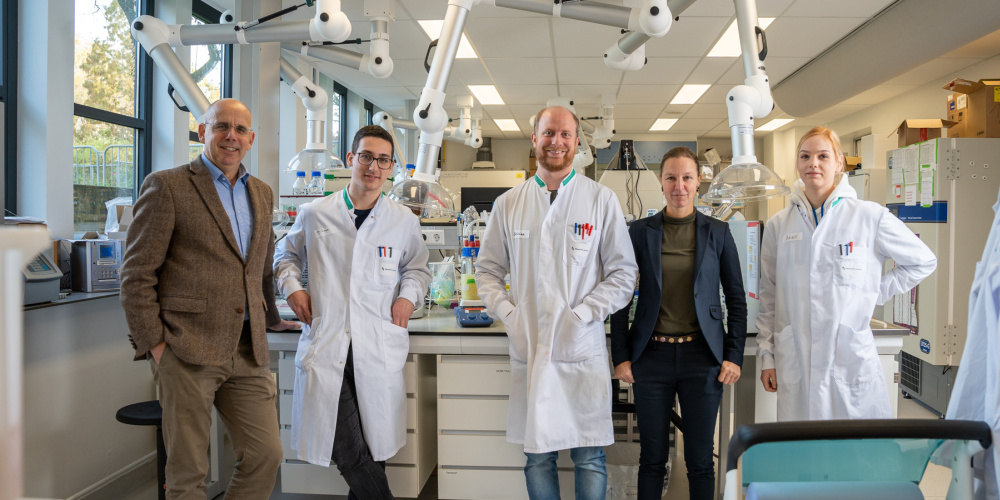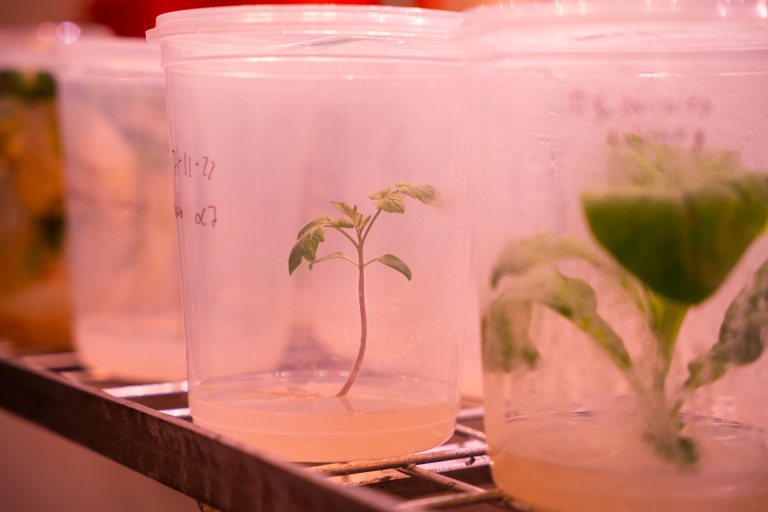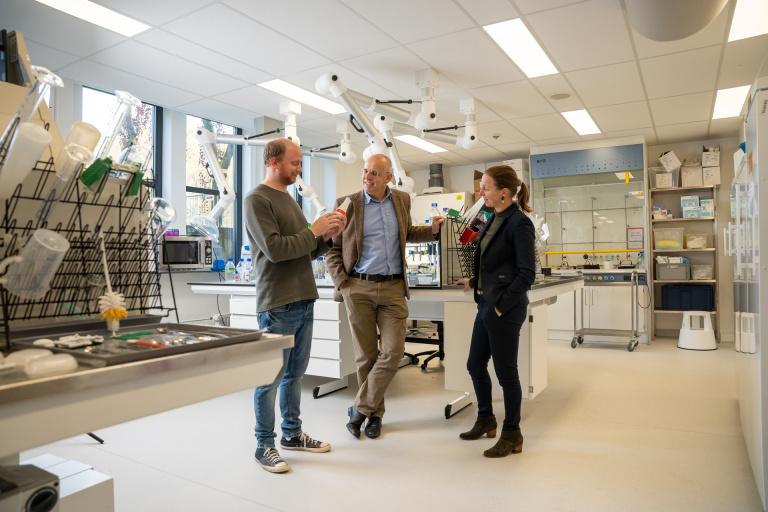LIOF and BioMosae
Actually, we all know it. Chemical pesticides - or pesticides - are harmful to health and the environment. BioMosae knows this too and is doing something about it. This innovative company develops biological crop protection products and plant enhancers based on special bacteria. Healthier, more sustainable.
Alex Schmeets, CEO of BioMosae, explains:
"We help growers and farmers protect their crops without having to use toxic chemical pesticides. To do this, we use bacteria as mini-factories of substances that protect plants from fungi. So we fight harmful fungi with the help of bacteria, so to speak. But, of course, bacteria that are not harmful to humans and the environment."
The researchers and entrepreneurs do this from the Brightlands Chemelot Campus in Geleen. Here they have a microbiology laboratory at their disposal. Alex maintains contact with suppliers, partners and investors; his colleagues mainly deal with technology and product development. The finances and strategy he does together with the CTO.
A lot of time and money
From this financial and strategic perspective, BioMosae sought contact with LIOF. Alex: We wanted to develop a drug against common fungi in plants. But before this can actually reach the market, you are many steps further. Compare it to a new drug. Does the drug work? How harmful is it? What are the effects on humans and the environment? This requires a lot of time and money. And in our case: research on efficacy, toxicology and ecotoxicology."
Over the first threshold
This requires investment. LIOF did not hesitate for long, says Niek Theunissen, investment manager at LIOF: "BioMosae touches on the transitions circularity, sustainability and health and thus contributes to important social tasks. This made us enthusiastic to invest in this company."
Farm-to-Fork: 50% fewer harmful pesticides in 2030 than in 2020
Healthier ...
Alex explains why it's so important to develop this product and get it past that initial stage: "Europe has determined with the Farm-to-Fork strategy that 50% fewer harmful pesticides should be used in 2030 than in 2020. That's a big task. Our product contributes to this."
... and more sustainable
"New regulations and societal pressures are forcing growers to trade some of their synthetic crop protection and fertilizer products for organic options. Very popular are strategies for integrated pest management, or IPM. A way to make growing healthy crops as sustainable as possible. Our new organic crop protection product makes this possible."
Chemical pesticides cause a lot of damage
to both human health and the environment
Less dependency, less waste
"Is a grower using the right biological pesticides at the right times? Then he will eventually need fewer synthetic pesticides." So lower cultivation costs, while yields are high and of good quality. Alex: "This is also how we work together on financial sustainability. In addition, we use biological compounds as raw materials in the production of biological pesticides. That means: no waste."
The final recipe is in sight
BioMosae looks enthusiastically to the future: "After many years of development, next year we are going to formulate our final product, together with our partner Ceradis. In which we will create a 'final recipe' so to speak. We hope to introduce a new biological crop protection product in 2025 or 2026."
Hook up too!
Finally, does Alex have a tip for other entrepreneurs who also want to do business in a more sustainable, smart and health-conscious way? "Hook up with the existing Brightlands eco-systems. I can heartily recommend that. It has brought us a lot. Venlo for the Agri-food network, Maastricht for valorization, marketing and legal support and the Chemelot Campus has even become our home because of the high-quality lab infrastructure."
The Brightlands campuses in Limburg offer a huge infrastructure of knowledge.
Don't let it lie unused!
For more info go to www.biomosae.com.
This testimonial is from November 2022.
Photography Ron Wiersma.





